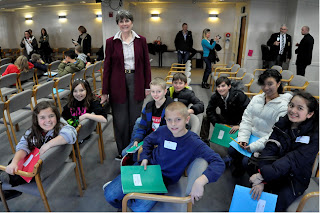
What if there was an institution that could finance public projects that support economic development, create jobs, increase public health, safety and quality of life, improve the environment, promote community vitality, and even offer low-cost loans to struggling students?
Rep. Bob Hasegawa believes such an institution is possible in our state and he’s sponsoring a
measure to create it. He calls it The Washington Investment Trust, and the idea is having its first public hearing this week.
Hasegawa said that although the Washington Investment Trust is modeled after the Bank of North Dakota, this startup legislation is much narrower in approach because it will focus on infrastructure lending to municipal governments and student loans.
HB 2434 is scheduled for a hearing this Thursday, January 26 at 8:00 a.m. before the House Committee on Business & Financial Services, in House Hearing Room B of the John L. O'Brien Building.
The companion bill,
SB 6310 will also get a hearing on Wednesday, January 25 at 1:30 p.m. in the Senate Committee on Financial Institutions and Housing & Insurance, Senate Hearing Room 2 of the J.A. Cherberg Building.
“The Washington Investment Trust will keep our money in Washington, working for Washingtonians instead of ending up in Wall Street,” Hasegawa added, referring to taxpayers’ money that goes into an account held in a private bank which makes—and keeps—an interest off that money.
To read this story in Spanish,
click here.
 Students from King’s
Elementary in Seattle
sat down with Rep. Roberts and asked hard-hitting questions,
such as “What bill is your favorite?”
Students from King’s
Elementary in Seattle
sat down with Rep. Roberts and asked hard-hitting questions,
such as “What bill is your favorite?” 











